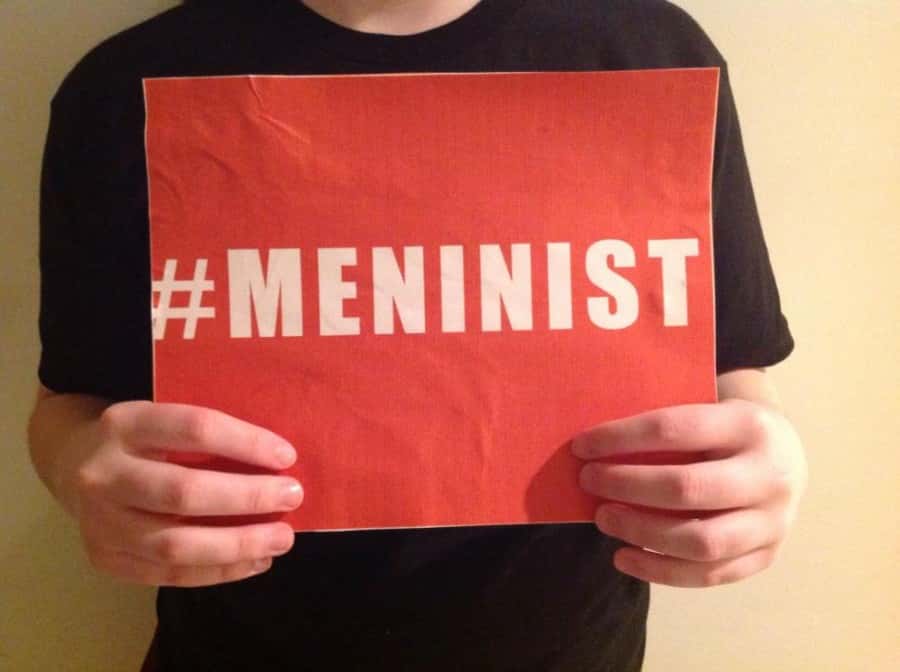Meninism is as absurd as it sounds and harder to comprehend than it is to spell. The term first appeared in 2013 when feminists used it to describe men who supported feminism and opposed all forms of misogynist behaviour. Fast forward to the present day and with the help of social media, it now holds a different meaning. Today, meninism is associated with those who oppose feminism and disregard their feelings about particular issues that affect men and women.

The transformation of meninism began in a light-hearted manner, with pictures of overweight men with the caption ‘stop objectifying men – real men have curves’ spread over the Internet. These memes along with people’s dislike to films such as Magic Mike could put pressure onto how a man should physically look.
Ben Maples, Digital Executive from Chelmsford, Essex believes ‘Like every social problem, it has its place in modern society, but is perhaps not as big an issue as feminism. Feminism supports the ideals of trying to achieve equal pay for both men and women and focuses on bridging the gap between the two genders, whereas I feel meninism, is more or less just making a big deal out of stuff that isn’t necessarily a big issue.’
He said: ‘I don’t feel that society takes meninism as seriously as feminism, whether that is right or wrong isn’t really the issue, the issue is the fact that people often don’t take things seriously and end up ridiculing various social movements so as to feel important.’
He added, ‘If we do turn to meninism, the goals of the movement need to become more defined and need to be addressed in a mature and socially conscious manner, although as many social movements have proven over the years, this can be easier said than done.’
Hashtags appeared on Twitter that ruined the running joke entirely. Hashtags such as #YesAllMen and #WomenAgainstFeminism appeared and escalated. Instead of jumping on the trending tag of #AllMenCan to positively talk about how men and women are allies in the feminist world, other tags were made as a direct counter-argument to feminist hashtags like #YesAllWomen.
Comparing these to the several feminist hashtags, like #IneedFeminism and #MasculinitySoFragile that encouraged men and women to highlight ways in which society addresses gender. Meninist hashtags seem to have a negative agenda. It is the complete opposite.
Dan Punch, Vice President at the University of Sunderland’s Student Union said: ‘I think it is diabolical that any man should go against making sure women have the equal rights to men. [This] happened back in the day and we are now in the 21st Century and should be updating how we think.
Punch, 25 said he was a firm believer that women should have equal rights to men. He believes meninism could take off: ‘It isn’t a surprise because British culture at the moment is dynamically changing.’
In 2014 #RapeCultureiswhen went viral and drew attention to the numerous ways society blames victims of assault or rape. Zerlina Maxwell, a survivor of sexual assault started the hashtag with ‘#Rapecultureiswhen we make a million lists of “prevention tips” for WOMEN but fail to teach men not to rape.’
Internet trends should be used to have an open discussion about issues that affect both genders. To release voices. To open minds. To listen. However the trend of mocking feminism and misogyny is only increasing the serious and real sexist ideologies out there. And they are now being released to the world.
MeninistTweet on Twitter currently has over 1.25 million followers. It sends out tweets to it’s followers including, ‘when females get bored they pretend to like you just for the entertainment’ and ‘If you REALLY want to feel empowered, go become the CEO of a company, get a degree in computer engineering and work in that field.’
The account also advised women to ‘actually do something worthwhile and notable, not just…dying your armpit hair or bleeding all over yourself.’
Last month, Ryan Williams, 19 from Essex who describes himself as a meninist, criticised those who want to end ‘tampon tax’. He tweeted: ‘If you can’t control your bladder that’s not the taxpayer’s problem’ and ‘Tampons should not be free, why does everyone keep saying they should be?? Pay for your own tampons if [you] can’t hold it until [you] get to a toilet.’
Williams also believes menstruation occurs through a woman’s bladder and urethra.
His tweets went viral and appeared in national newspapers as well as most users’ social media feeds. His tweet was shared thousands of times and hundreds of strangers were telling him to ‘take extra biology lessons’. He stands his ground. Whilst also creating a new hashtag such as #stoptheblob, and a Gofundme page which since has been deleted.
Daniel Cross, 25, stated: ‘You hear a lot more about inequality of women than men however I do think there are more things that oppress women than men.’
‘It wouldn’t personally bother me whether something was considered more what a woman would do, but I also think sexual orientation stereotypes come into that as well. It’s seen as more of a big deal for a straight guy to be a hairdresser than a gay guy.’
Cross, an accounting and banking graduate felt that the popularity of meninism could increase, but ‘not anytime soon. I think that would be a lot in the future. A good change may come but I think there would be a bit of an uproar and an act of inequality will arise from it’.
Social movements can inspire and help to motivate change within society. But they can also turn positive ideologies into a joke on social media. On the other hand some could argue that the worst feature of social media is the social aspect, especially the fact that every person, their thoughts and opinions are out there for all to see. Then when it comes down to feminism and meninism in regards to gender equality the latter may have proved the argument right.



